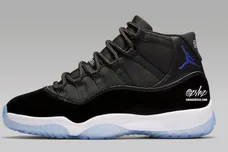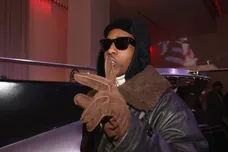With an early success partly due to his association with Dr. Dre and Aftermath Entertainment, The Game became a definitive figure in 2000s rap. His music became a channel to reflect the gritty reality of street life, as well as the essence of West Coast Hip Hop. Despite a public feud with G-Unit, and his subsequent departure from Aftermath in 2006, The Game continued to find success with early projects like Doctor's Advocate and LAX, and later works like Jesus Piece and 1992. Now it's 2024, and The Game's style seems to have evolved. He currently boasts a willingness to experiment with new sounds and features.
This is why his new mixtape, Time is something different from what we’ve come to expect from The Game. A rather short project, with a total of 12 tracks, and a runtime of just over half an hour, the rapper is still as ambitious as he was in the beginning. The collaborative project with STB (Secure The Bag Entertainment) is loaded with impressive lyricism, as all the artists involved utilize their time and creativity wisely.
Read More: Top 25 Best The Game Songs
Personal Growth
Personal growth is a central theme to Time, as The Game introspects on his life's journey. Throughout the project, he speaks on lessons learned, and the wisdom gained during his life. It's almost reminiscent of the sentiments of his 2005 hit "Dreams" from the album The Documentary. On the track "Mind Body and Soul," Woodboy Gee raps about the importance of self-care and inner harmony, a significant departure from what you'd expect to hear on an album from The Game but a welcomed elevation from the external bravado that occupies much of the West Coast rapper's earlier discography. "Soul searchin' till I find me, in the depths where the mind be," Gee raps.
"Rent Due (ft CHLLER)" is another track that fits this theme. Another reminiscent tune, this song is almost like “My Life" featuring Lil Wayne. The Game addresses the pressures of life and the relentless pursuit of success with a direct, cutthroat flow. However, this song is an explosive masterpiece, and we can thank CHLLER and his versatile flows for that.
Social Commentary And Street Life
The Game has always been known for vivid storytelling. He has especially painted many pictures of life in the streets of Compton. "I Feel Like A Dope Boy" and "Bend A Corner" are prime examples of his ability to tell similar stories differently. "I Feel Like A Dope Boy," another Woodboy Gee collab, is a hard-hitting two-person account of the drug trade and flashing living, reminiscent of “Westside Story," The Game's epic 2005 track. "Corner to corner, the block is hot, feel like a dope boy even when I'm not," he raps.
"Bend A Corner" is yet another collab, this time with C Stunna. The Game raps about the maneuvers needed to survive and thrive in a tough environment. "Turnin' corners, dodgin' the reaper, life's a gamble." Old-school The Game has also done this before with "Russian Roulette" from his 2012 mixtape California Republic. Evidently, the signs of The Game keeping with the new are present. But there’s also a deep nod to the past songs that carved his legacy.
Big Dreams And Aspirations
Ambition and the fruits of labor are celebrated in songs like "Empire State Flow" by Woodboy Gee, and "Trap Boy Dreams." "Empire State Flow" is an homage to New York's influence on Hip Hop, with a Gucci-Mane-esque hook, and what sounds like The Game's own aspirations (which he raps about on “Higher” in 2005) delivered in drawled-out lyrics. "Built my empire, brick by brick, now watch it glow," he boasts. On "Trap Boy Dreams," which also features Woodboy Gee, The Game reflects on the journey from the streets to the top of the game, almost like 2011's “Pot of Gold.”
Criticism
The Game enlisted several producers for Time including BeatsByTaz, Big Duke, and Cassius Clay. The executive producer for the album is The Game himself, and he may have used his creative powers a little too much. Some tracks suffer from a lack of polish, with beats that sound outdated, or mismatched with the flow. For instance, "Kirk Cousins" features production that could have been innovative a decade ago, but feels recycled and uninspired in 2024. In the same vein, the constant flashbacks to his past work can feel like an attempt to bank on nostalgia.
Another criticism of Time is its lack of thematic cohesion. The album seems to jump between different styles without a clear connecting thread. For example, transitions from the introspective "Mind Body and Soul" to the braggadocious "Flex" feels abrupt. This can, therefore, lead to an unpleasant listening experience.
A last point of contention is The Game evidently taking a backseat. While collaborations can enhance a project, what Time feels like, is other artists drowning out a great rapper. This overreliance dilutes the impact of The Game's artistry and voice. However, all of these just seem to be an experiment gone partially awry. All any fan has to do is listen to the masterpiece that is “Control” to know that The Game is still very much at the top of his rap game. Nonetheless, he should probably seek to dominate any projects attached to his name in the future. After all, he’s proven in the past that he’s got the no-nonsense, cutthroat grit to steal the spotlight.
[via]









